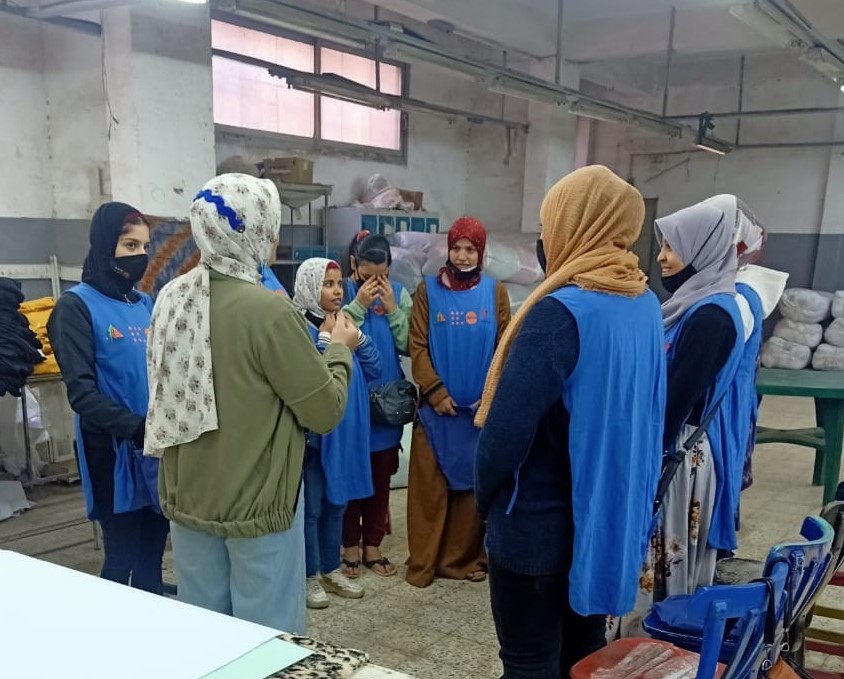UNFPA signed a protocol with the Federation of Egyptian Industries (FEI) and the Egyptian Chamber of Apparel and Home Textile Industries to build the capacity of 200 women and girls.
The initiative aims to prepare women and girls aged 18-30 for employment, by providing training on soft skills as well as raise their awareness on reproductive health and gender-based violence including child marriage.
The workshops, taking place over two months, brought together women and girls from the governorates of Fayoum, Beni Suef and Qaliubiya.
This comes in the context of the 16 Days of Activism Against Gender-Based Violence, as UNFPA continues to empower women and girls to combat violence against women.
28-year-old Al-Shaymaa Mohamed from Fayoum said that she found the discussions around reproductive health topics useful. 
“Even if participants knew that practices such as early marriage and FGM occur in their communities, these discussions helped them understand the causes behind it and the context around it,” she said.
Mohamed explained that if women and girls are better informed, it will help them understand their rights and better function within their households.
“Women will understand that having a job won’t conflict with her role in her house,” she said.
UNFPA continues to seek partnerships that will help it achieve the three transformative results; ending unmet need for family planning, ending gender-based violence and harmful practices and ending preventable maternal deaths.
During the signing event on November 25, UNFPA Representative in Egypt Dr. Aleksandar Bodiroza said that interventions need to be “structured, comprehensive joint work of partners in order to stabilize population growth and address its consequences.”
He explained the link between harmful practices and population growth.
“When girls get married at the age of 15-16, that girl has no access to information, has no education and because her reproductive period becomes much longer, has more children,” Dr. Bodiroza explained, “so we are trapped in a vicious cycle of disempowerment that is very difficult to break. But it has to start somewhere.”
Addressing the partnership, Dr. Bodiroza said, “We are merging what we do best with what you do best.”
“You give them the skills and the job and we give them the knowledge that will make sure that their life continues the way they dreamed about it,” he continued.
“That’s why this partnership makes perfect sense.”
Mohamed Abdel Salam, chairman of the Egyptian Chamber of Apparel and Home Textile Industries, said that being dominated by the female labor force, the textile industry sees a high rate of turnover, which he attributed to health challenges faced by women who lack knowledge on their reproductive health.
“I discovered that the more knowledge women have the more likely they are to stay on the job and reduce the turnover,” he said.
According to Khaled Abdel Azim, Executive Director of FEI, women constitute over 70 percent of the textile industry.
“We want to address the high rate of turnover in the field … through this program we are aiming to empower women and integrate them into the labor market and at the same time serve the market by retaining its workers,” he said.


